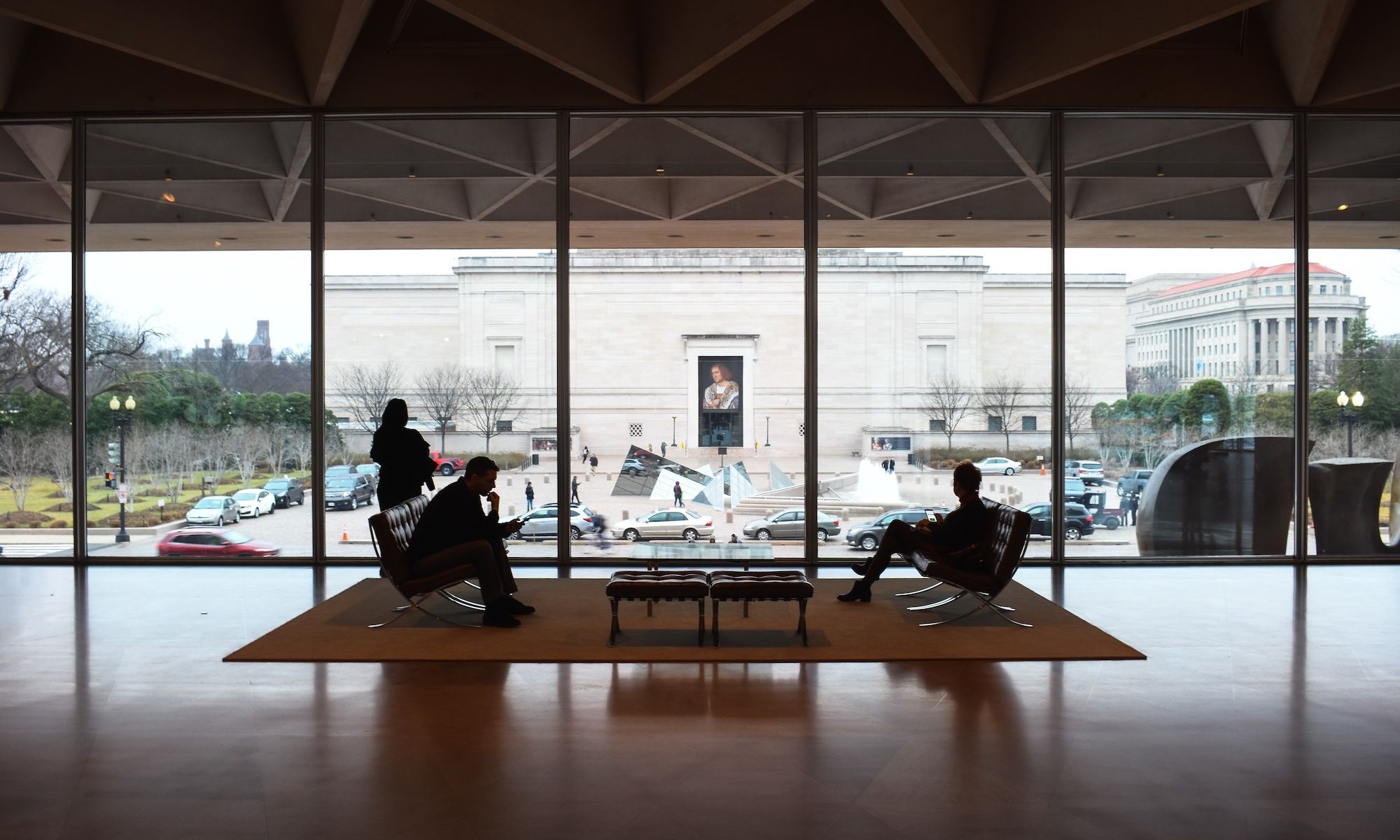Visitors in the east building of the National Gallery of Art in Washington, DC Photo by Jared Arango on Unsplash
Federally funded arts organisations in the United States—including the Smithsonian Institution’s 21 museums and the National Gallery of Art (NGA) in Washington, DC—are making plans for a government shutdown in case, as is looking increasingly likely, Congress is not able to pass a spending bill or short-term stopgap bill by the morning of 1 October.
Spokespeople for both the Smithsonian and the NGA say that the institutions will remain fully open until at least 7 October, assuming there is a shutdown and it lasts until then. That includes all 21 museums operated by the Smithsonian in the Washington, DC, area and New York City—including the Smithsonian American Art Museum, Hirshhorn Museum and Sculpture Garden and the National Museum of the American Indian—plus the National Zoo. A statement explained that the Smithsonian will rely on “prior-year funds” to remain open through 7 October. The NGA, whose facilities span two buildings on the National Mall connected by an underground tunnel and ground-level plaza, will likewise remain open until at least 7 October.
A spokesperson for the NGA says that if a shutdown were to last beyond 7 October, it is unclear how much longer the gallery would be able to remain open. Rather than taking a phased approach, keeping some spaces and services open while others are paused, the NGA would close entirely. Similarly, a Smithsonian spokesperson says that plans for a shutdown lasting beyond 7 October will be made next week if necessary, but its museums would close completely if the shutdown were to continue further into next month, rather than phasing down operations gradually.
The Smithsonian and the NGA closed about two weeks into the previous US government shutdown, which began in December 2018 and continued for 35 days, until late January 2019.
A spokesperson for the National Endowment for the Humanities (NEH) pointed to the agency's recently updated plan for operations in the absence of funding, which states that "in the event of a funding hiatus, the agency will proceed with the orderly shutdown of operations, beginning on the first workday of the hiatus", unless carryover funds (unused monies from previous funding rounds) are available.
A spokesperson for the National Endowment for the Arts (NEA), the biggest federal funder for the arts, said: "Should a lapse occur, and depending on the length of the lapse period, the NEA has available appropriated carryover balances and will therefore continue with modified operations focused on allowable activities for as long as carryover balances permit."
The present potential shutdown that would begin at one minute past midnight on Sunday (1 October) is due to an impasse between far-right and more centrist Republican members of the House of Representatives, who remain divided on key issues related to government funding. A shutdown occurs when Congress fails to pass a new budget for government spending before the end of the previous term.

